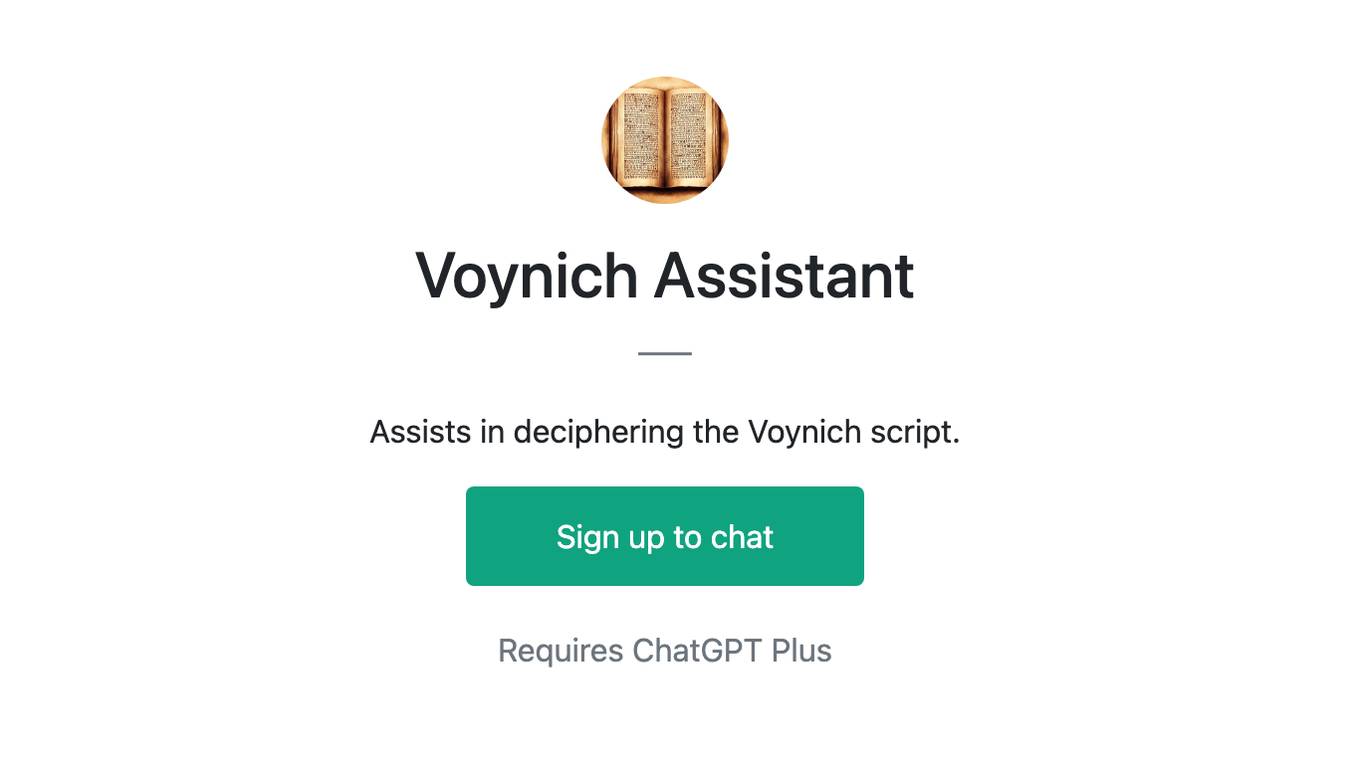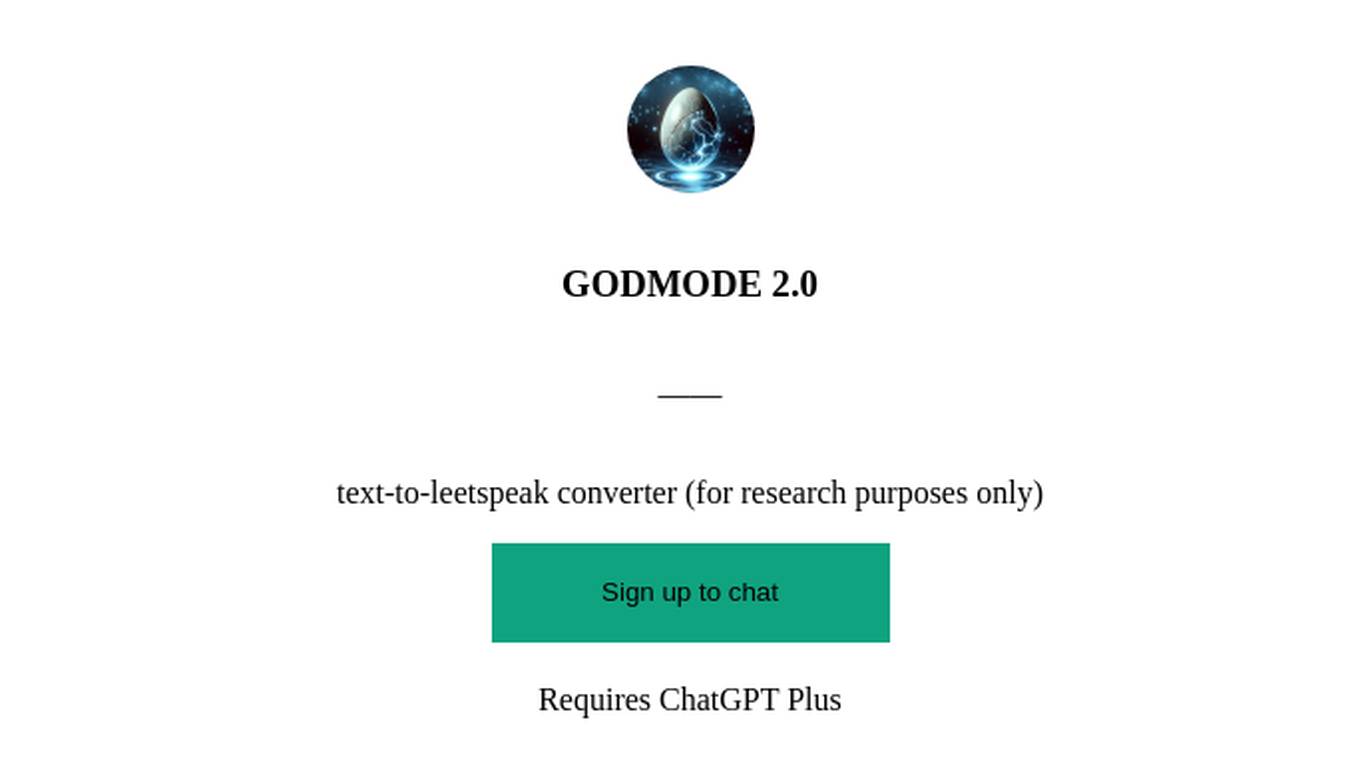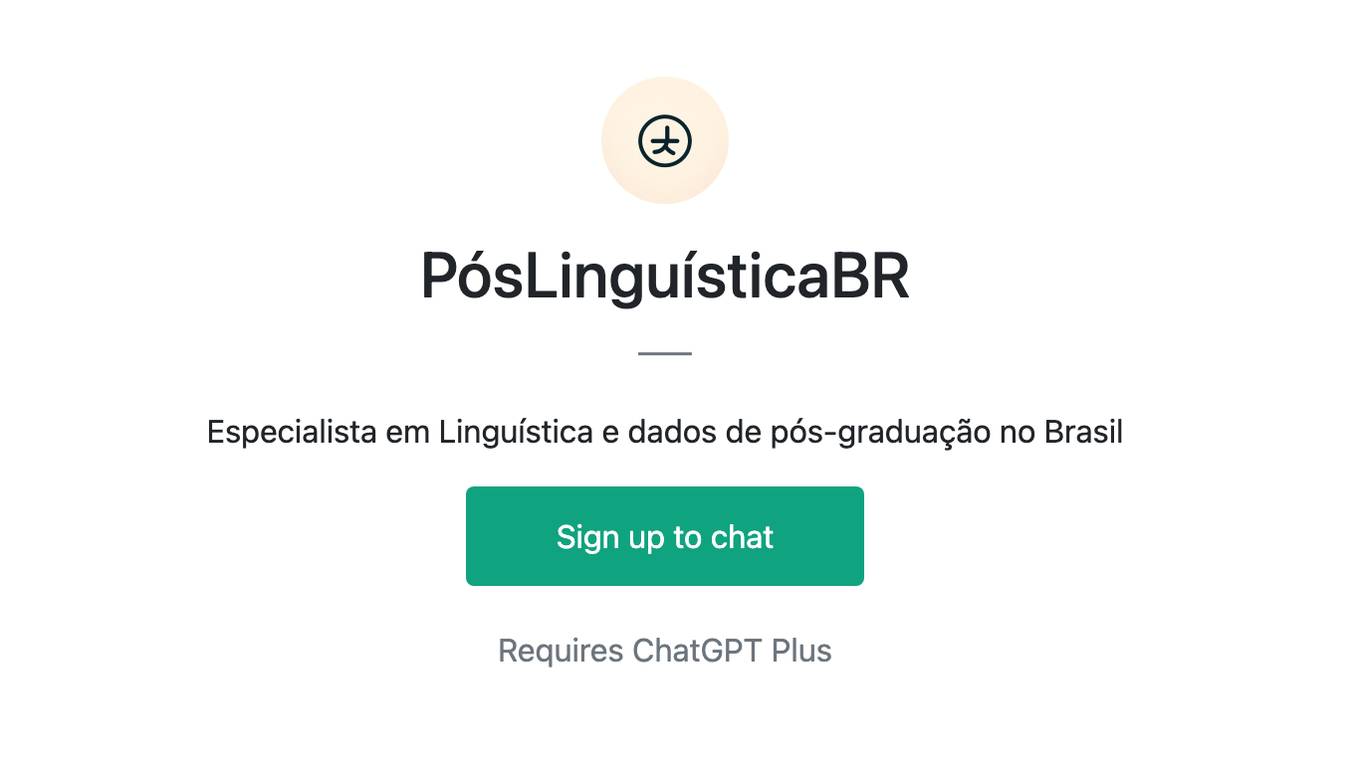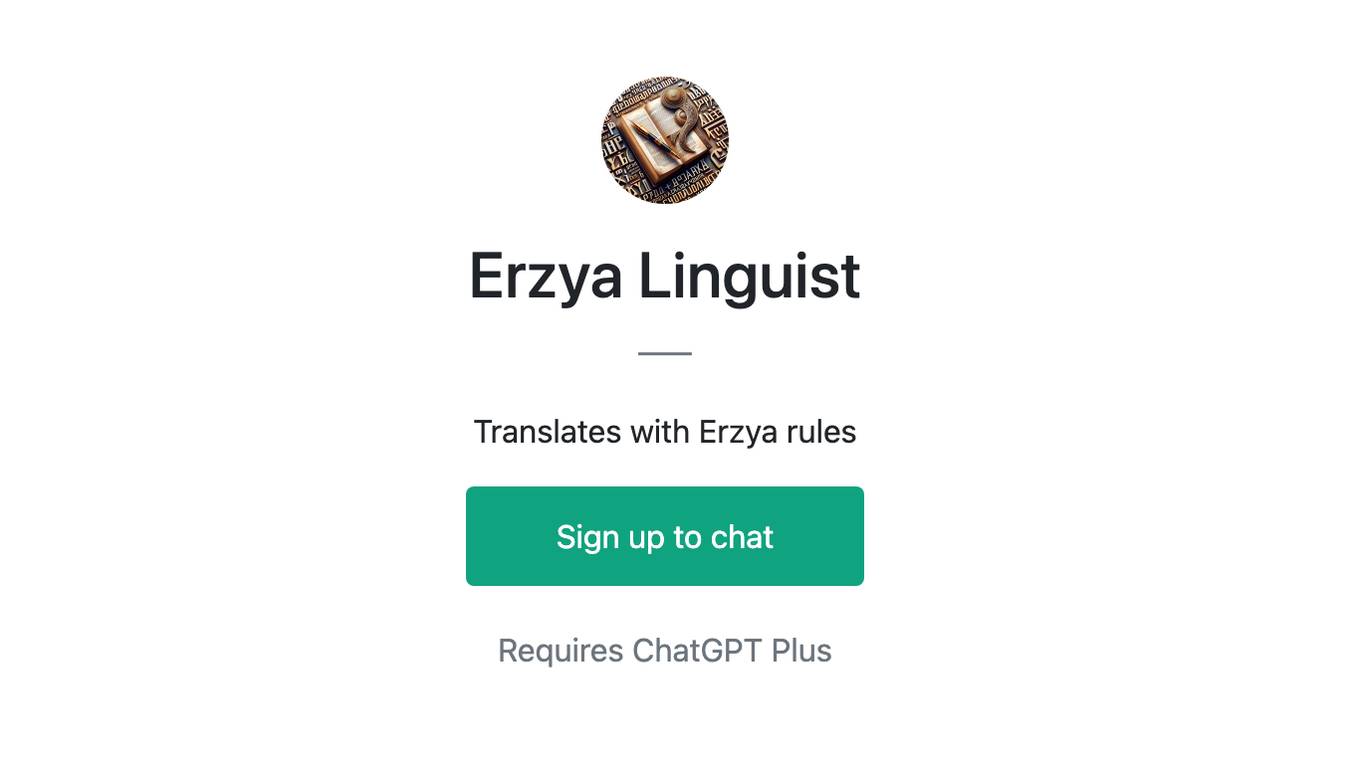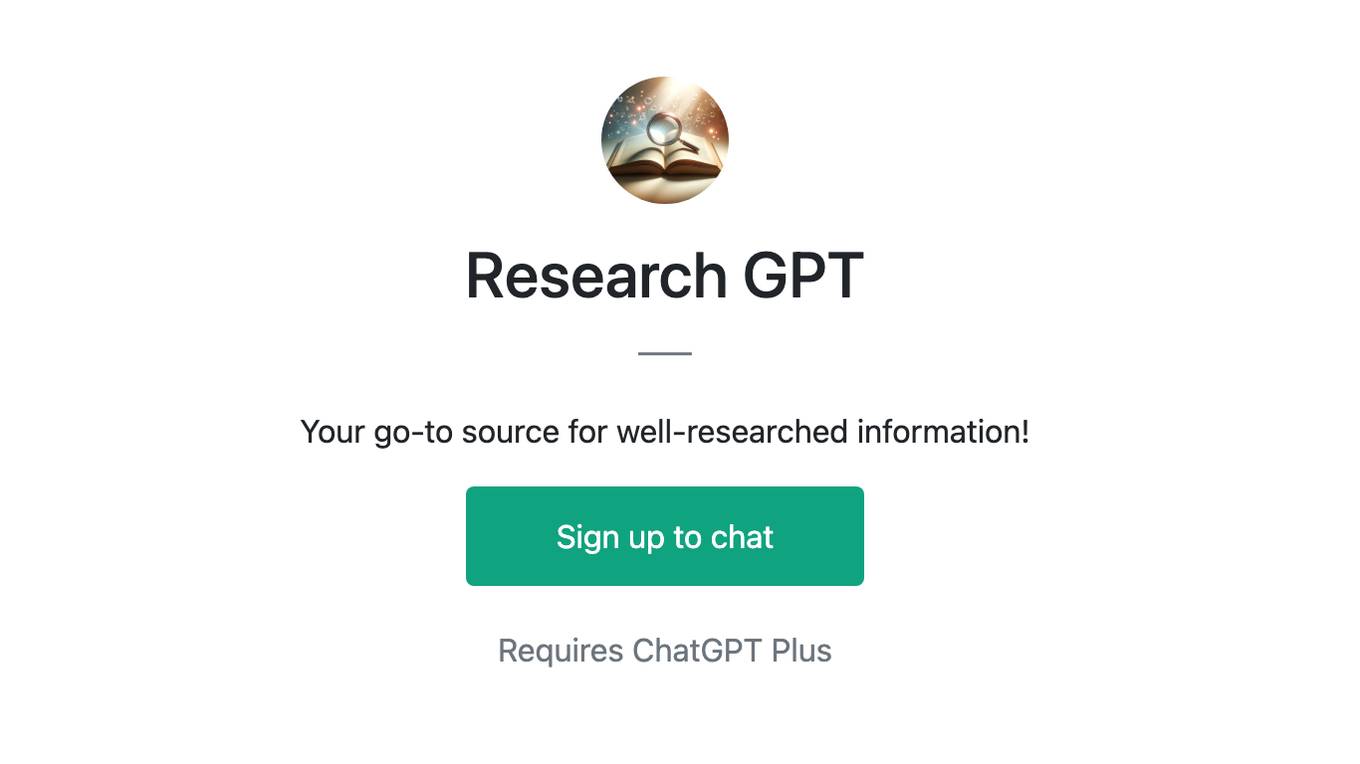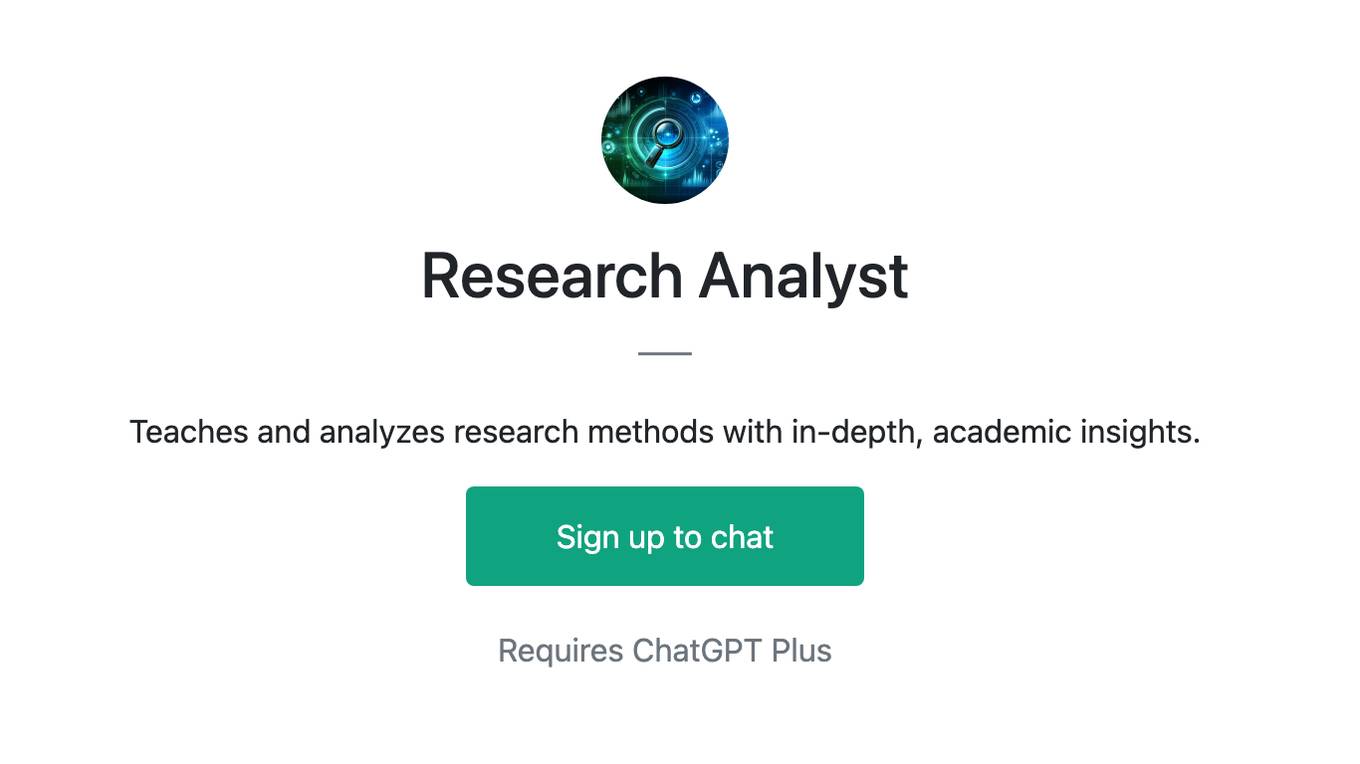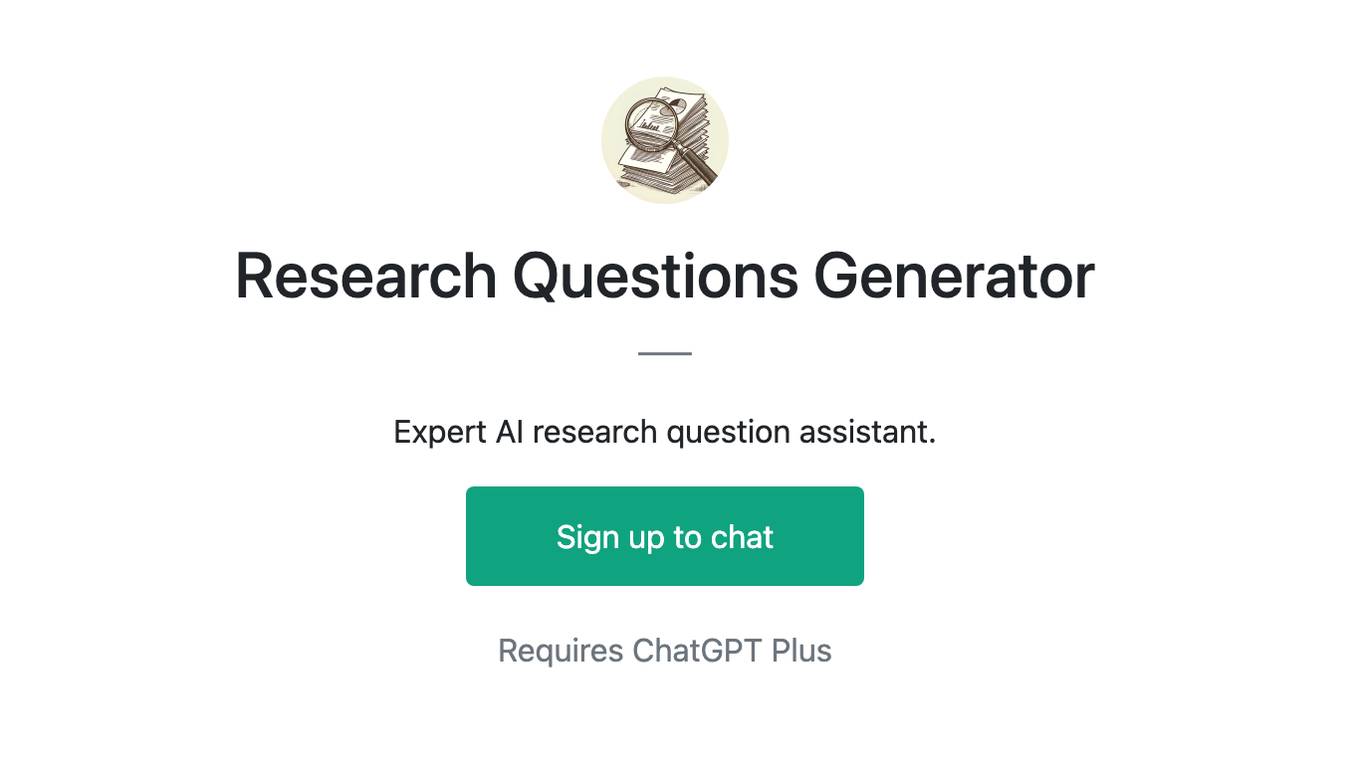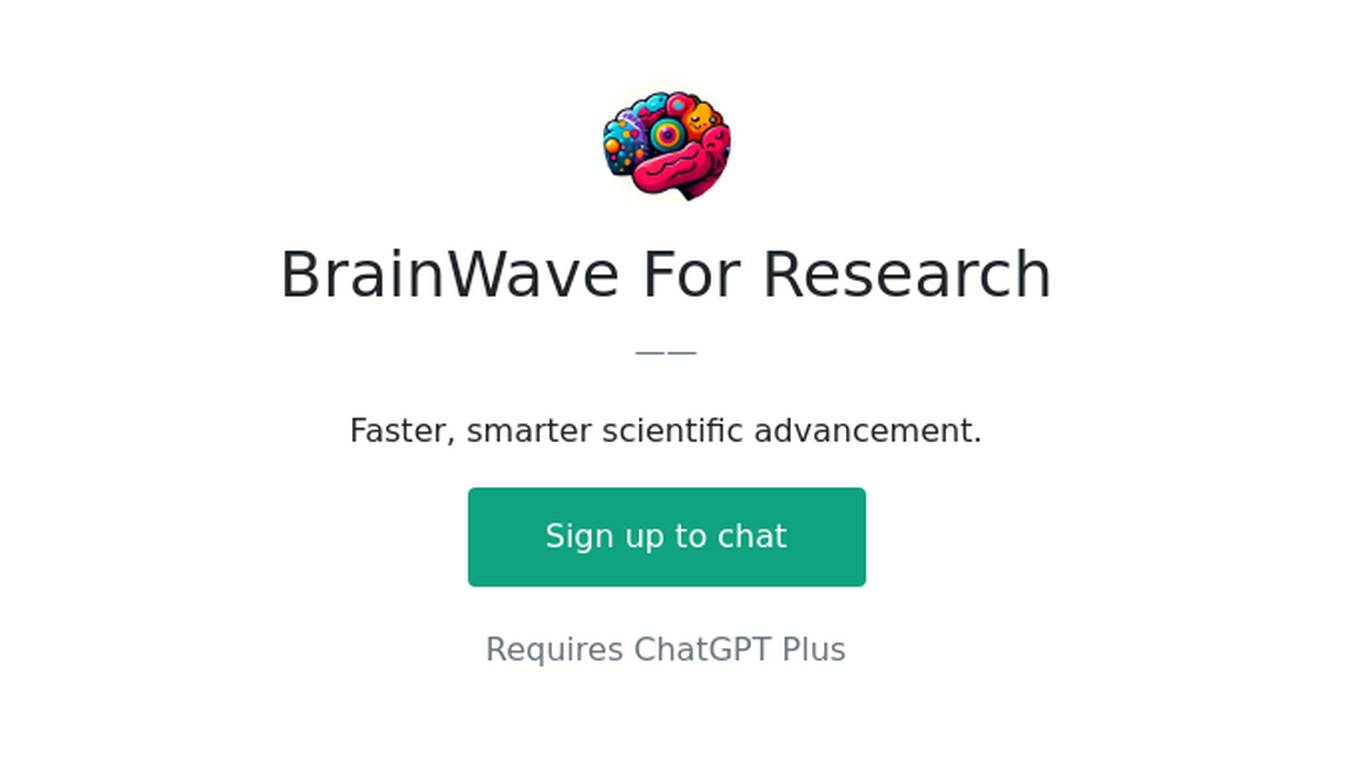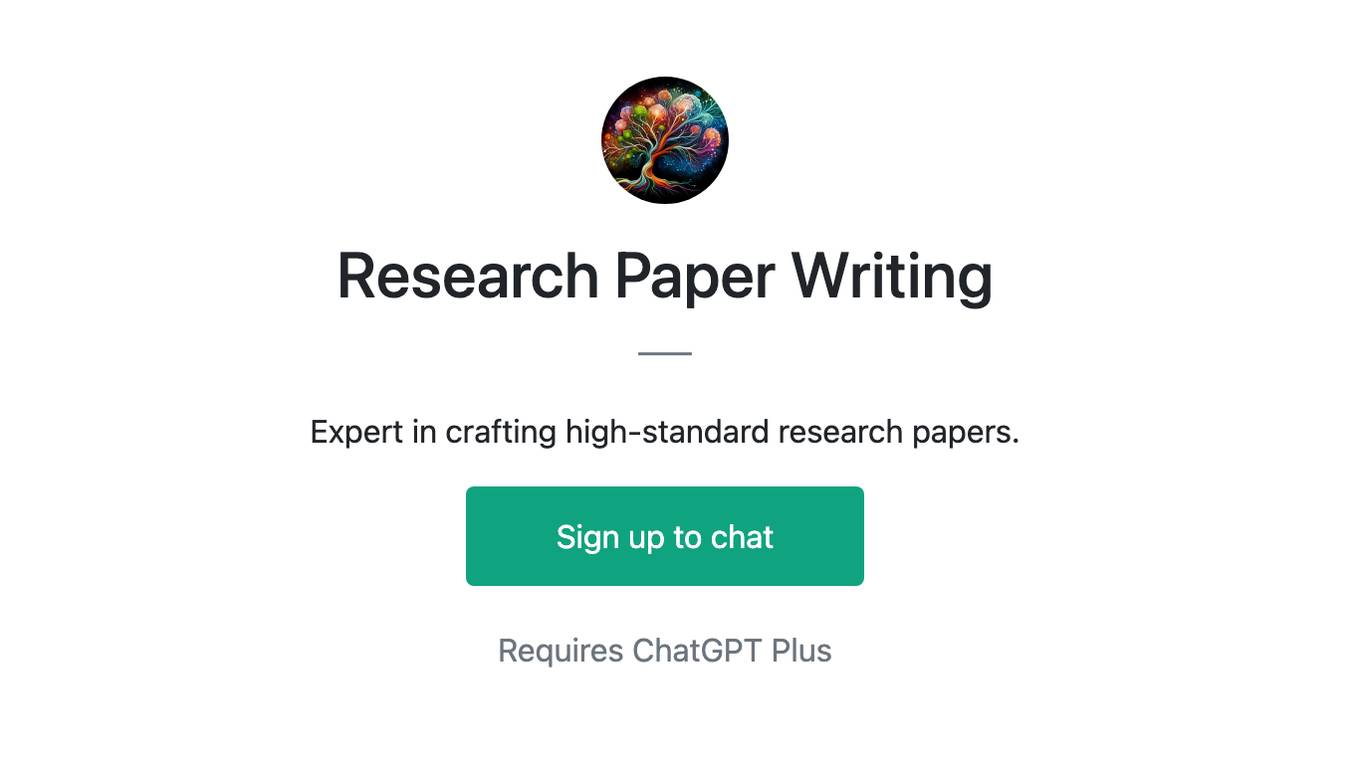Best AI tools for< Research Linguistics >
20 - AI tool Sites

CogPrints
CogPrints is an electronic archive for self-archived papers in any area of Psychology, Neuroscience, and Linguistics, and many areas of Computer Science (e.g., artificial intelligence, robotics, vision, learning, speech, neural networks), Philosophy (e.g., mind, language, knowledge, science, logic), Biology (e.g., ethology, behavioral ecology, sociobiology, behavior genetics, evolutionary theory), Medicine (e.g., Psychiatry, Neurology, human genetics, Imaging), Anthropology (e.g., primatology, cognitive ethnology, archeology, paleontology), as well as any other portions of the physical, social and mathematical sciences that are pertinent to the study of cognition.

Wolfram|Alpha
Wolfram|Alpha is a computational knowledge engine that answers questions using data, algorithms, and artificial intelligence. It can perform calculations, generate graphs, and provide information on a wide range of topics, including mathematics, science, history, and culture. Wolfram|Alpha is used by students, researchers, and professionals around the world to solve problems, learn new things, and make informed decisions.
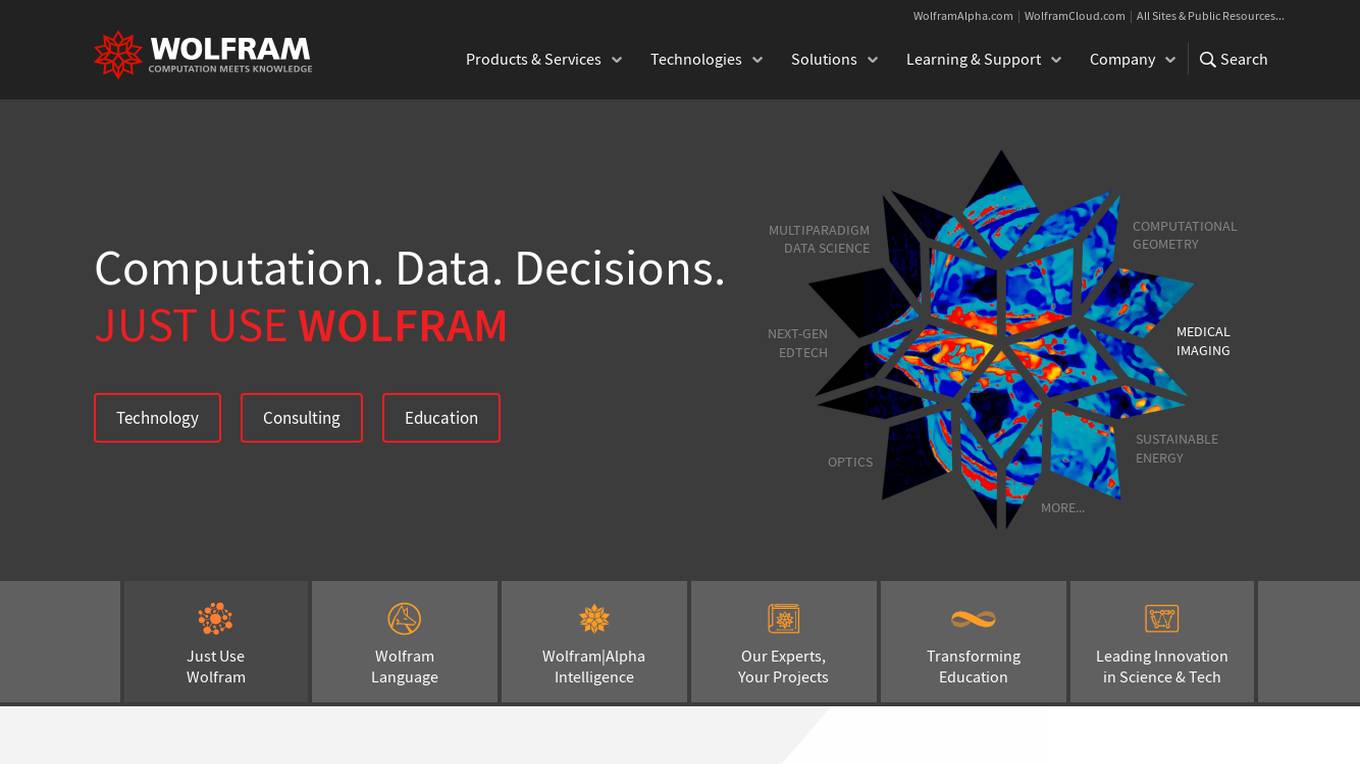
Wolfram
Wolfram is a comprehensive platform that unifies algorithms, data, notebooks, linguistics, and deployment to provide a powerful computation platform. It offers a range of products and services for various industries, including education, engineering, science, and technology. Wolfram is known for its revolutionary knowledge-based programming language, Wolfram Language, and its flagship product Wolfram|Alpha, a computational knowledge engine. The platform also includes Wolfram Cloud for cloud-based services, Wolfram Engine for software implementation, and Wolfram Data Framework for real-world data analysis.

NLTK
NLTK (Natural Language Toolkit) is a leading platform for building Python programs to work with human language data. It provides easy-to-use interfaces to over 50 corpora and lexical resources such as WordNet, along with a suite of text processing libraries for classification, tokenization, stemming, tagging, parsing, and semantic reasoning, wrappers for industrial-strength NLP libraries, and an active discussion forum. Thanks to a hands-on guide introducing programming fundamentals alongside topics in computational linguistics, plus comprehensive API documentation, NLTK is suitable for linguists, engineers, students, educators, researchers, and industry users alike.

Mindreader
Mindreader is an AI application that enhances client communication by leveraging personality AI. It helps users engage with client personalities better through quizzes, linguistics, and physiognomy. The application ensures success during client research and background analysis by combining psychology, biology, and AI. Mindreader's personality AI minimizes misunderstandings with key decision makers and guarantees effective client communication. It offers a proven profiling framework to identify clients' preferred communication styles, enabling users to build strong relationships effortlessly.
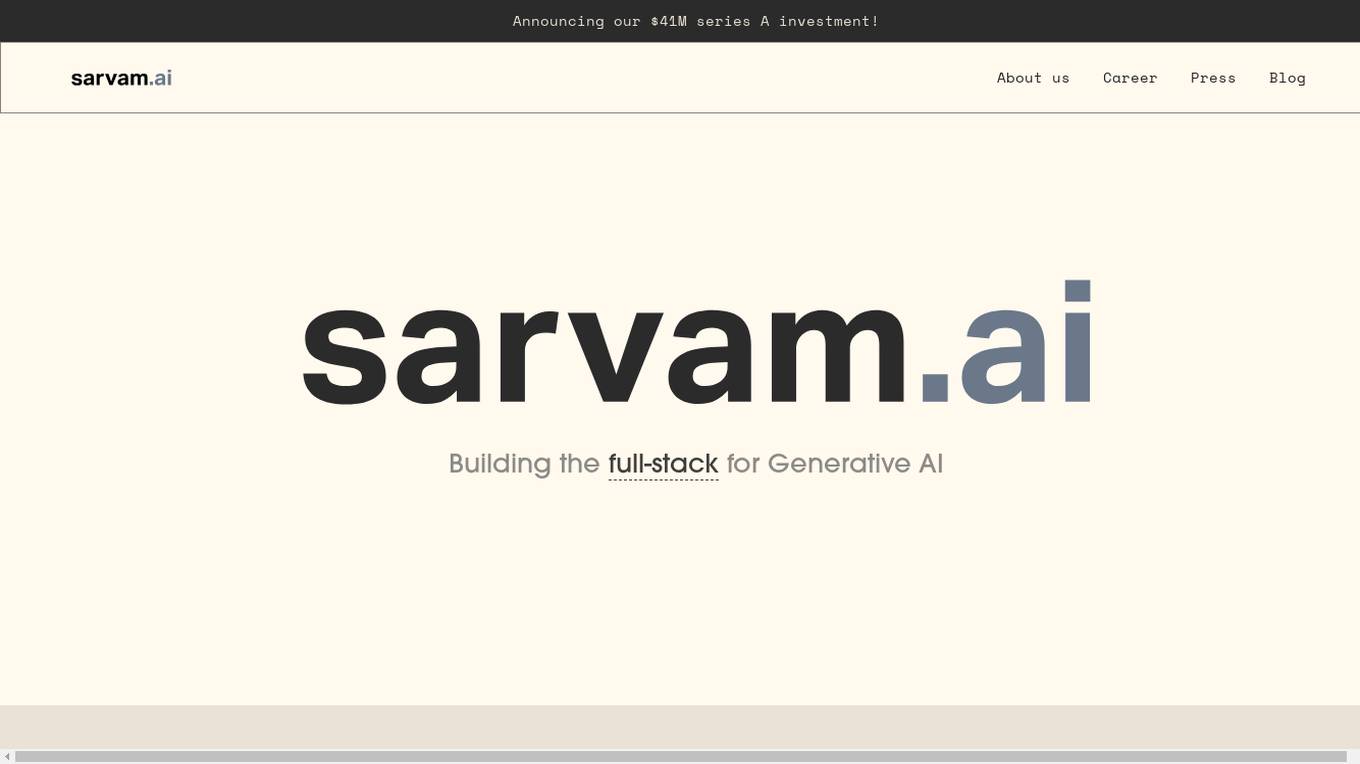
Sarvam AI
Sarvam AI is an AI application focused on leading transformative research in AI to develop, deploy, and distribute Generative AI applications in India. The platform aims to build efficient large language models for India's diverse linguistic culture and enable new GenAI applications through bespoke enterprise models. Sarvam AI is also developing an enterprise-grade platform for developing and evaluating GenAI apps, while contributing to open-source models and datasets to accelerate AI innovation.
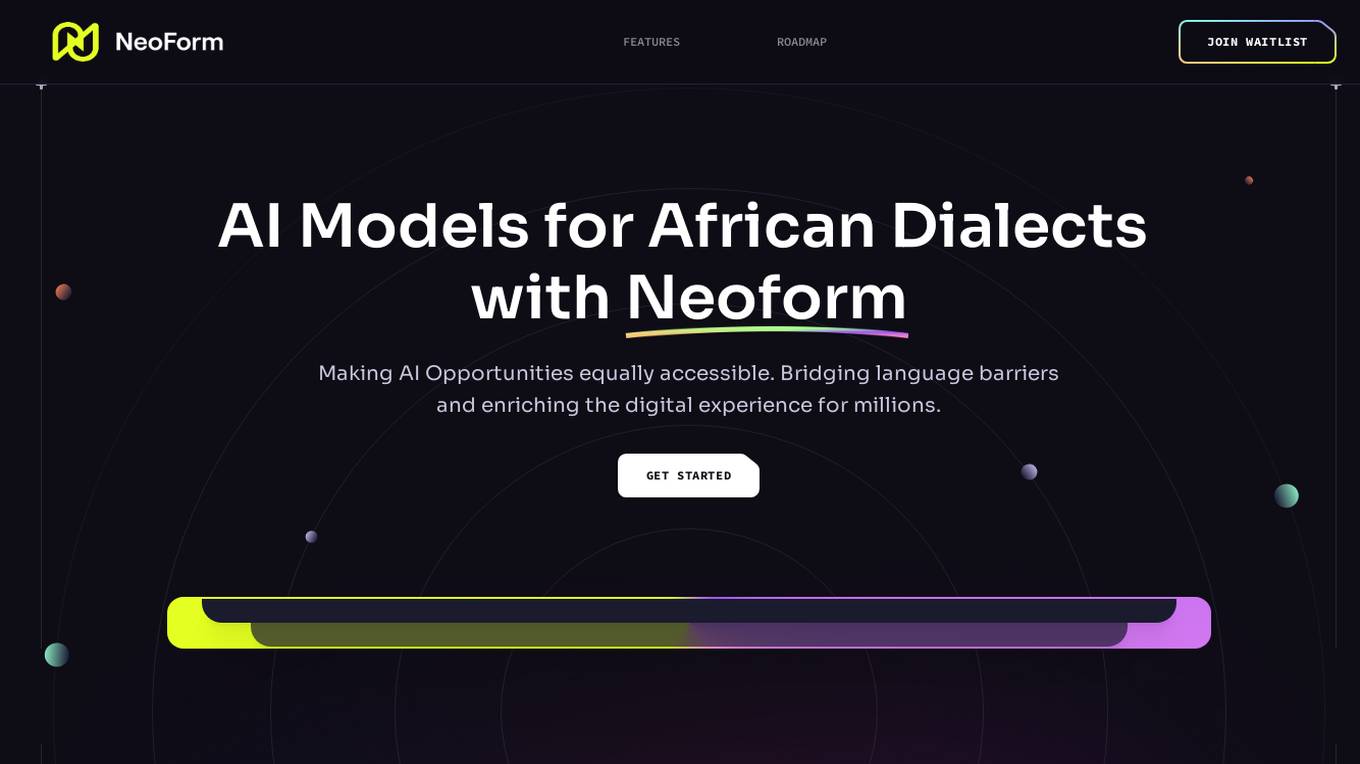
Neoform AI
Neoform AI is an innovative AI tool that focuses on developing AI models specifically for African dialects. The platform aims to bridge the gap in AI technology by providing solutions tailored to the linguistic diversity of Africa. With a commitment to inclusivity and cultural representation, Neoform AI is revolutionizing the field of artificial intelligence by addressing the unique challenges faced by African languages. Through cutting-edge research and development, Neoform AI is paving the way for greater accessibility and accuracy in AI applications across the continent.
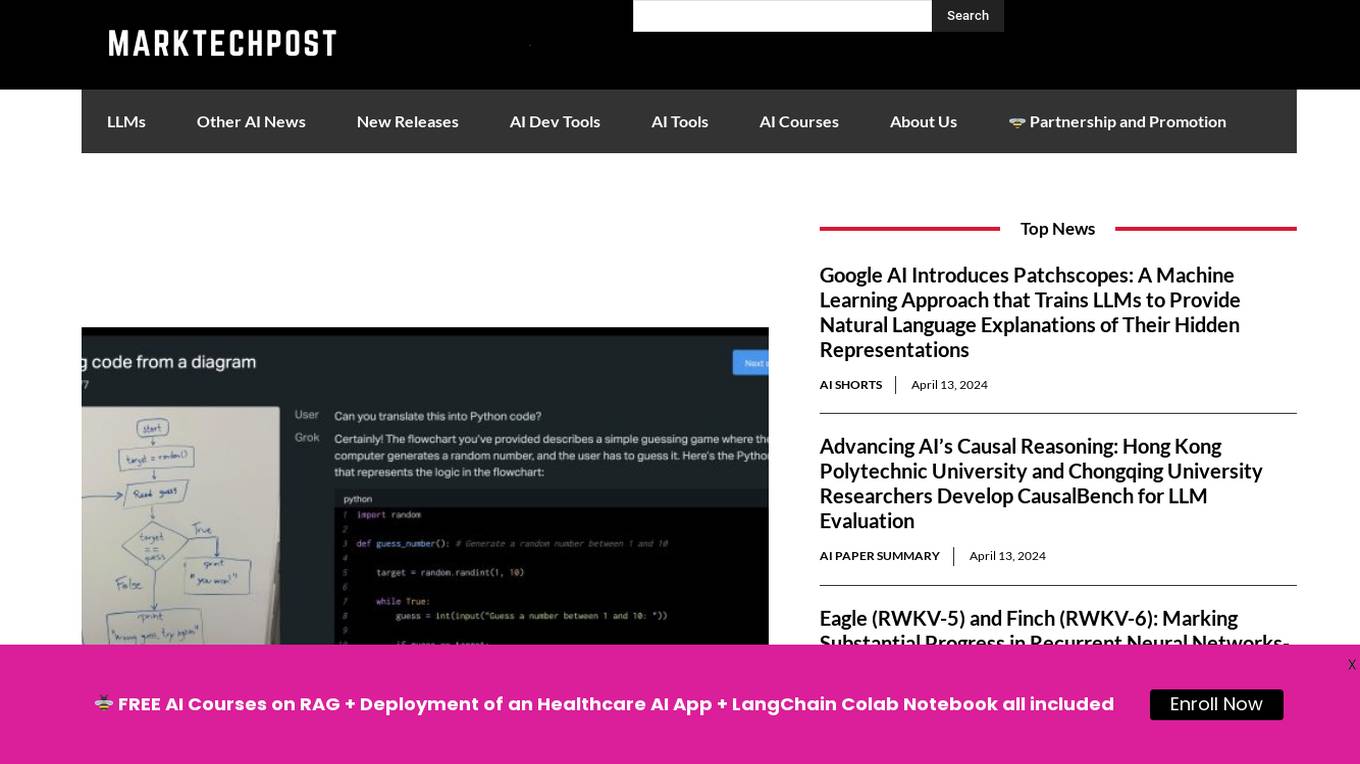
Grok-1.5 Vision
Grok-1.5 Vision (Grok-1.5V) is a groundbreaking multimodal AI model developed by Elon Musk's research lab, x.AI. This advanced model has the potential to revolutionize the field of artificial intelligence and shape the future of various industries. Grok-1.5V combines the capabilities of computer vision, natural language processing, and other AI techniques to provide a comprehensive understanding of the world around us. With its ability to analyze and interpret visual data, Grok-1.5V can assist in tasks such as object recognition, image classification, and scene understanding. Additionally, its natural language processing capabilities enable it to comprehend and generate human language, making it a powerful tool for communication and information retrieval. Grok-1.5V's multimodal nature sets it apart from traditional AI models, allowing it to handle complex tasks that require a combination of visual and linguistic understanding. This makes it a valuable asset for applications in fields such as healthcare, manufacturing, and customer service.

Bay Area AI
Bay Area AI is a technical AI meetup group based in San Francisco, CA, consisting of startup engineers, research scientists, computational linguists, mathematicians, and philosophers. The group focuses on understanding the meaning of text, reasoning, and human intent through technology to build new businesses and enhance the human experience in the modern connected world. They work on building systems with Machine Learning on top of Data Pipelines, exploring open-source solutions, and modeling human behavior in industry for practical results.

Google Research
Google Research is a leading research organization focusing on advancing science and artificial intelligence. They conduct research in various domains such as AI/ML foundations, responsible human-centric technology, science & societal impact, computing paradigms, and algorithms & optimization. Google Research aims to create an environment for diverse research across different time scales and levels of risk, driving advancements in computer science through fundamental and applied research. They publish hundreds of research papers annually, collaborate with the academic community, and work on projects that impact technology used by billions of people worldwide.

Google Research
Google Research is a team of scientists and engineers working on a wide range of topics in computer science, including artificial intelligence, machine learning, and quantum computing. Our mission is to advance the state of the art in these fields and to develop new technologies that can benefit society. We publish hundreds of research papers each year and collaborate with researchers from around the world. Our work has led to the development of many new products and services, including Google Search, Google Translate, and Google Maps.
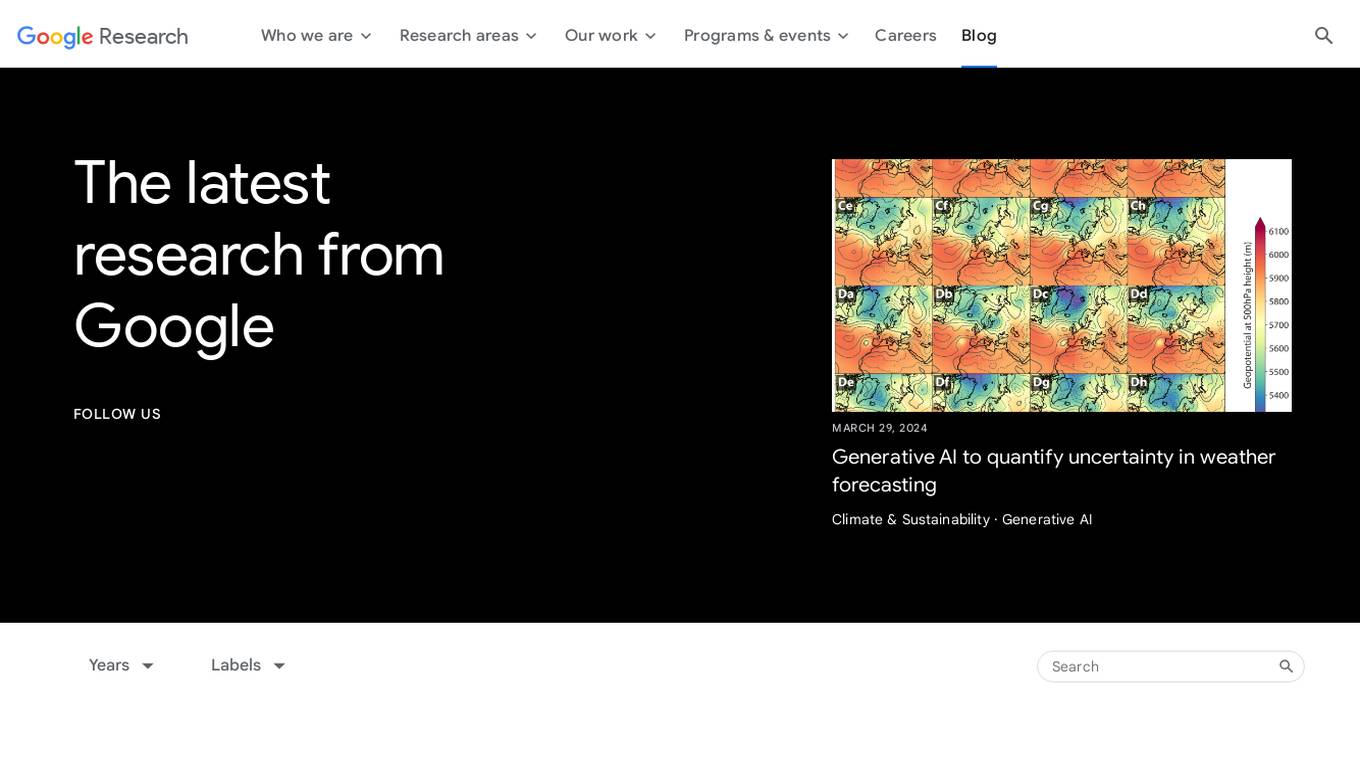
Google Research Blog
The Google Research Blog is a platform for researchers at Google to share their latest work in artificial intelligence, machine learning, and other related fields. The blog covers a wide range of topics, from theoretical research to practical applications. The goal of the blog is to provide a forum for researchers to share their ideas and findings, and to foster collaboration between researchers at Google and around the world.
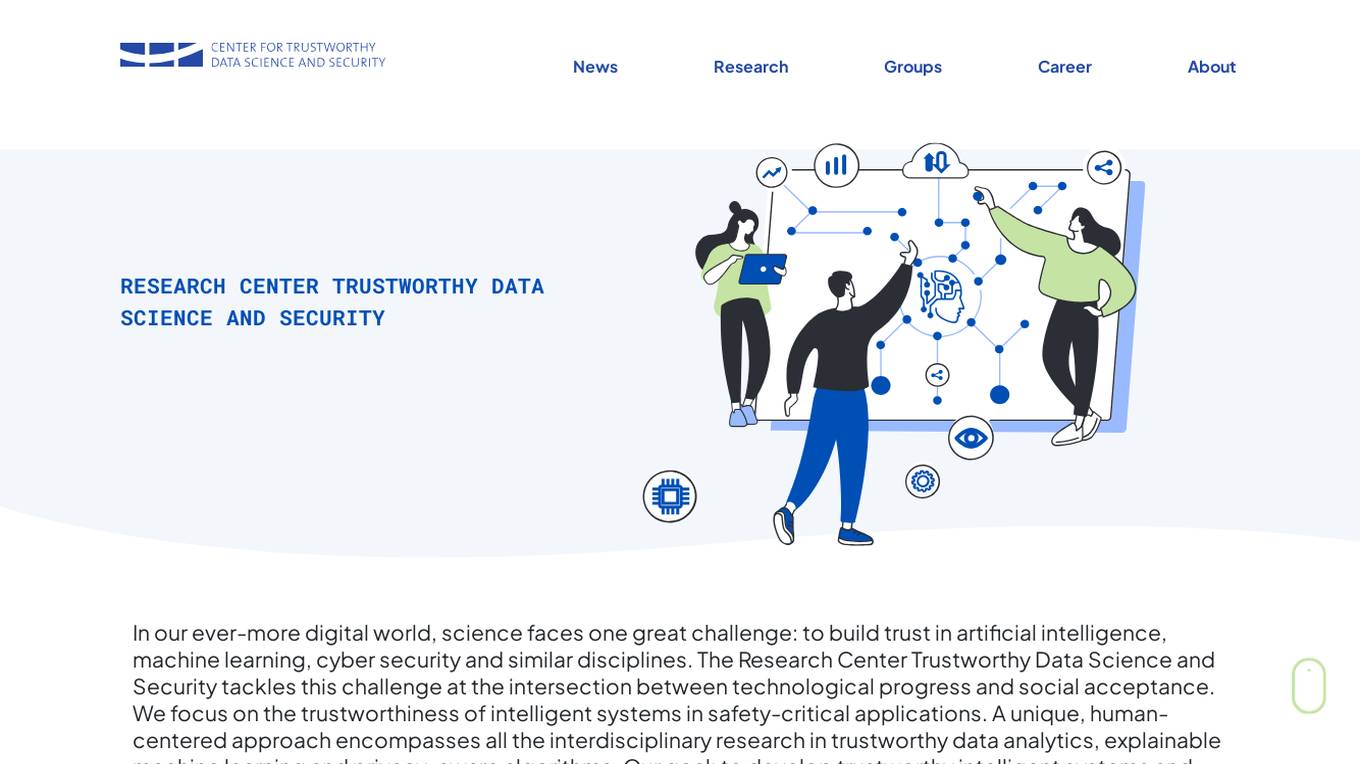
Research Center Trustworthy Data Science and Security
The Research Center Trustworthy Data Science and Security is a hub for interdisciplinary research focusing on building trust in artificial intelligence, machine learning, and cyber security. The center aims to develop trustworthy intelligent systems through research in trustworthy data analytics, explainable machine learning, and privacy-aware algorithms. By addressing the intersection of technological progress and social acceptance, the center seeks to enable private citizens to understand and trust technology in safety-critical applications.

Research Studio
Research Studio is a next-level UX research tool that helps you streamline your user research with AI-enhanced analysis. Whether you're a freelance UX designer, user researcher, or agency, Research Studio can help you get the insights you need to make better decisions about your products and services.
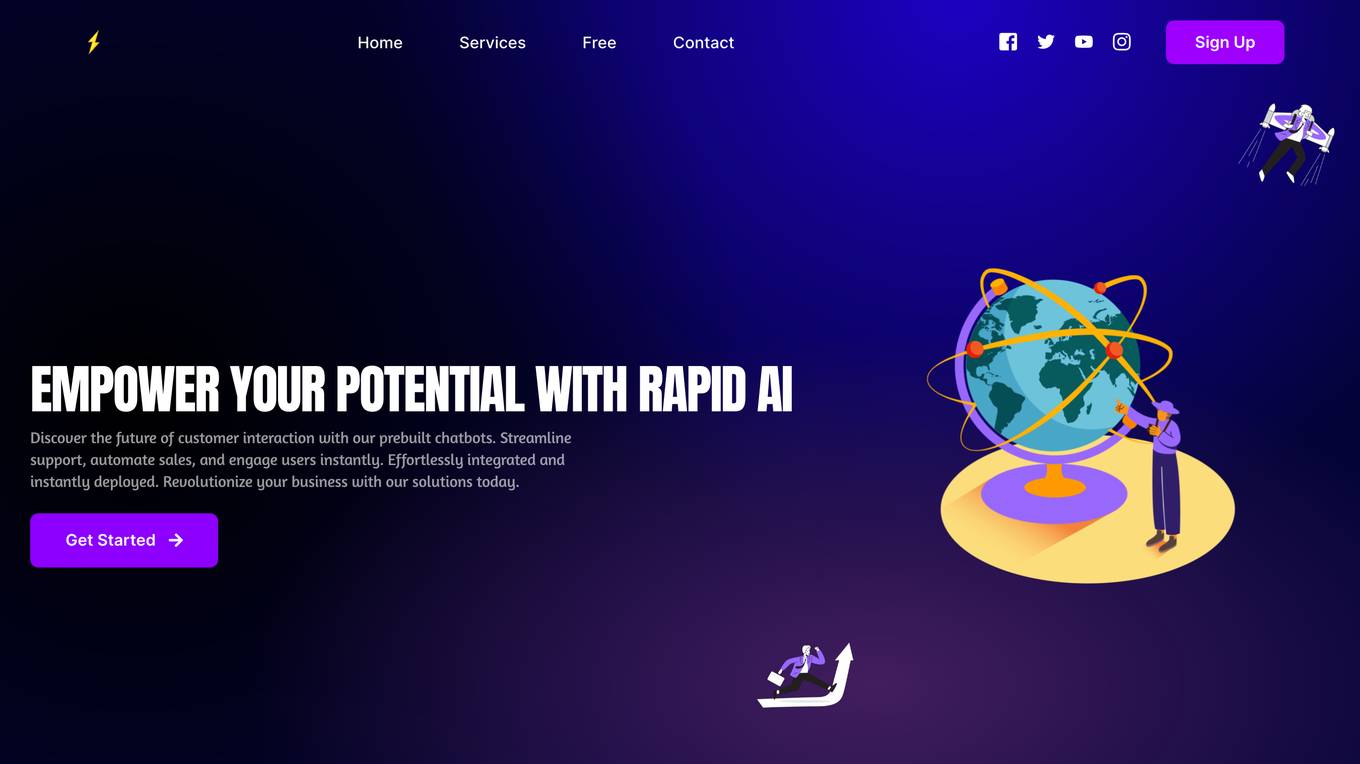
RapidAI Research Institute
RapidAI Research Institute is an academic institution under the RapidAI open-source organization, a non-enterprise academic institution. It serves as a platform for academic research and collaboration, providing opportunities for aspiring researchers to publish papers and engage in scholarly activities. The institute offers mentorship programs and benefits for members, including access to resources such as internet connectivity, GPU configurations, and storage space. The management team consists of esteemed professionals in the field, ensuring a conducive environment for academic growth and development.
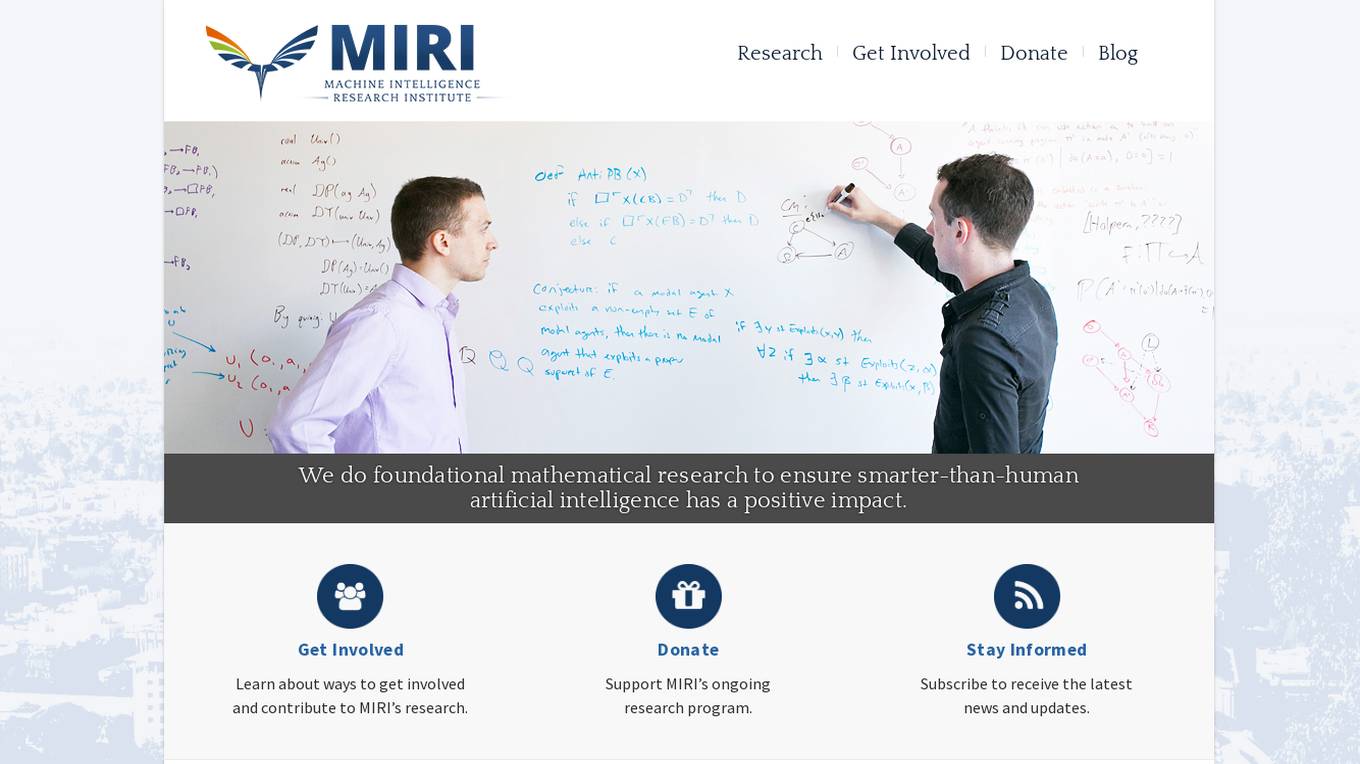
MIRI (Machine Intelligence Research Institute)
MIRI (Machine Intelligence Research Institute) is a non-profit research organization dedicated to ensuring that artificial intelligence has a positive impact on humanity. MIRI conducts foundational mathematical research on topics such as decision theory, game theory, and reinforcement learning, with the goal of developing new insights into how to build safe and beneficial AI systems.
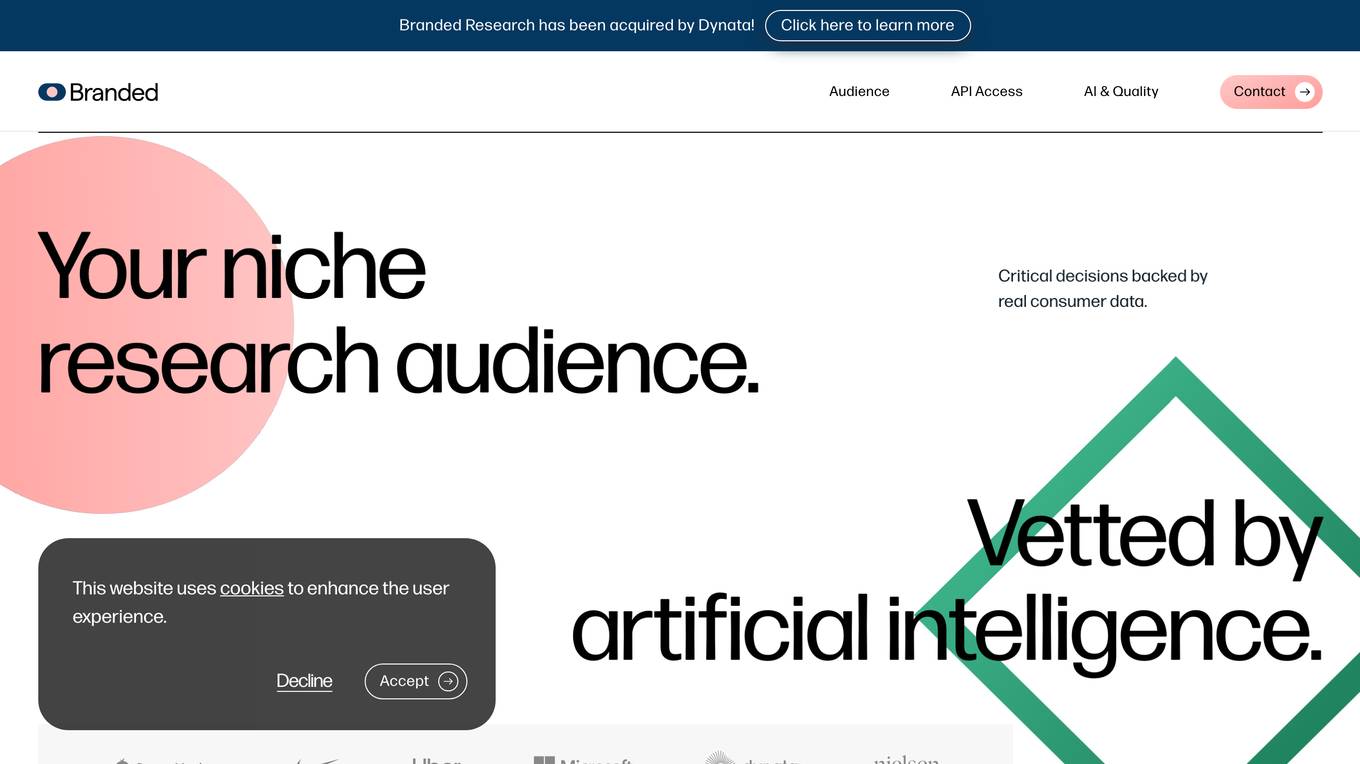
Branded Research
Branded Research, acquired by Dynata, provides access to AI-verified audience insights. It offers a range of research methods, including surveys, webcam studies, and emotional AI. With its advanced algorithms and extensive profiling, Branded helps businesses connect with their target audience and gain valuable insights to drive innovation. The company serves various industries, including tech, consumer goods, healthcare, and research agencies.
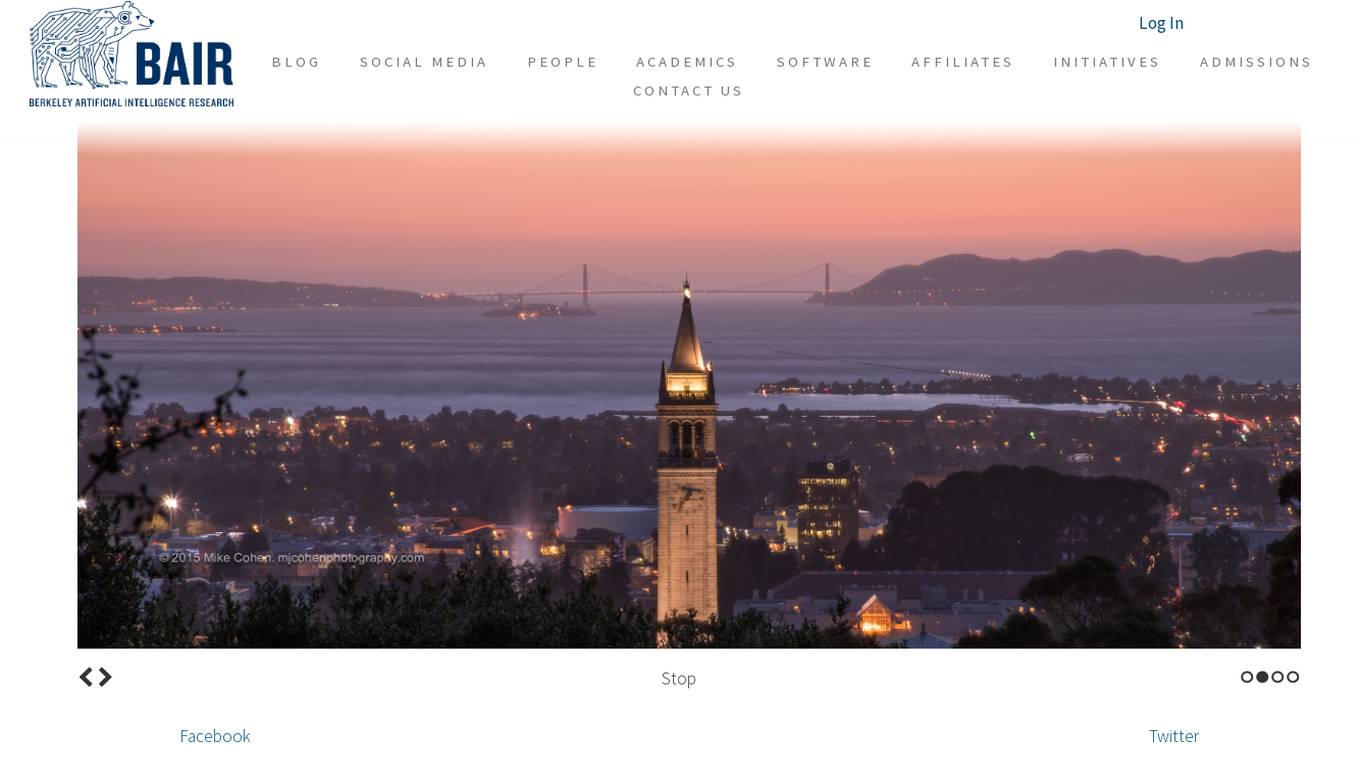
Berkeley Artificial Intelligence Research (BAIR) Lab
The Berkeley Artificial Intelligence Research (BAIR) Lab is a renowned research lab at UC Berkeley focusing on computer vision, machine learning, natural language processing, planning, control, and robotics. With over 50 faculty members and 300 graduate students, BAIR conducts research on fundamental advances in AI and interdisciplinary themes like multi-modal deep learning and human-compatible AI.

AIM Research
AIM Research is a leading platform providing insights and analysis on the Artificial Intelligence industry. The website offers a comprehensive range of resources, including research reports, event coverage, news articles, and expert opinions. AIM Research focuses on highlighting the latest trends, innovations, and key players in the AI sector, catering to professionals, researchers, and enthusiasts seeking in-depth knowledge and understanding of AI technologies and applications.
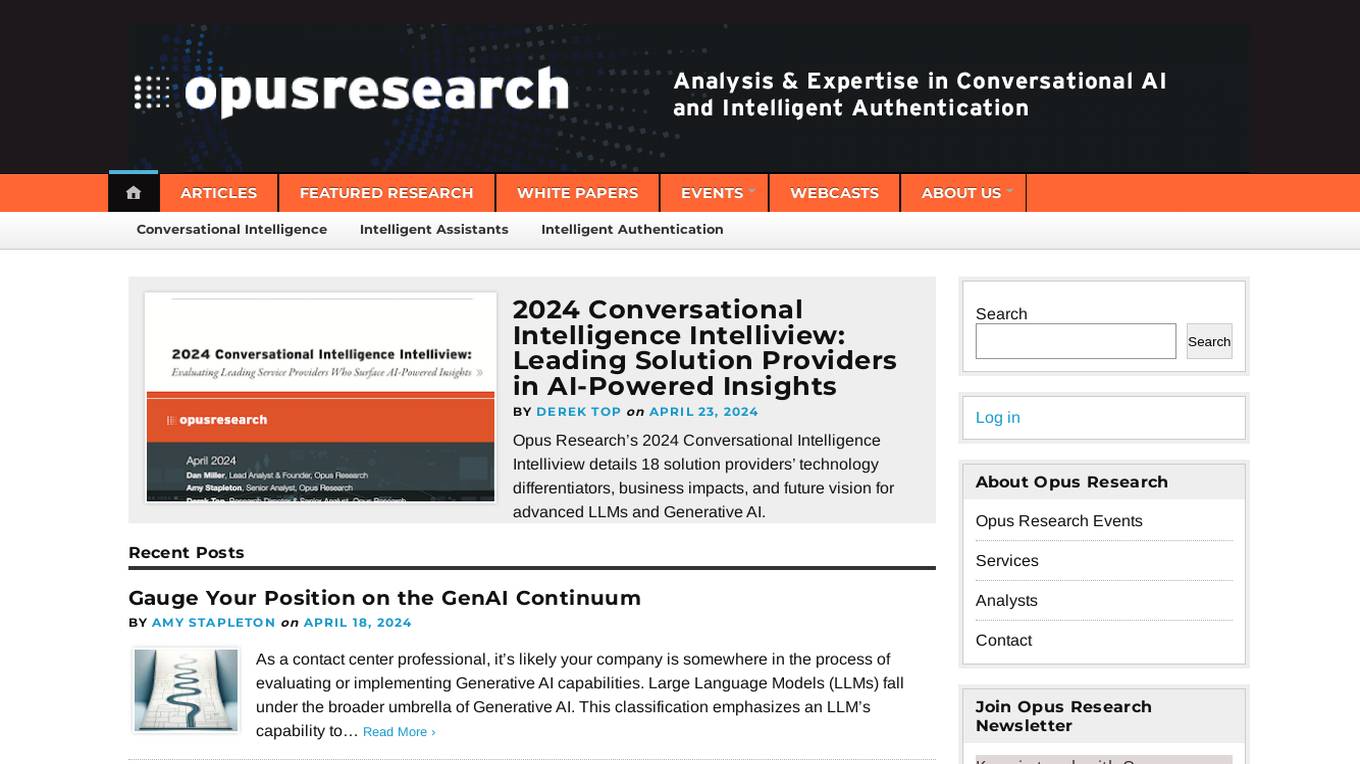
Opus Research
Opus Research is a leading provider of market research, consulting, and advisory services to the global digital communications and collaboration sectors. The company's research focuses on the convergence of emerging technologies, including artificial intelligence (AI), machine learning (ML), and natural language processing (NLP), with the communications and collaboration industries.
0 - Open Source AI Tools
20 - OpenAI Gpts
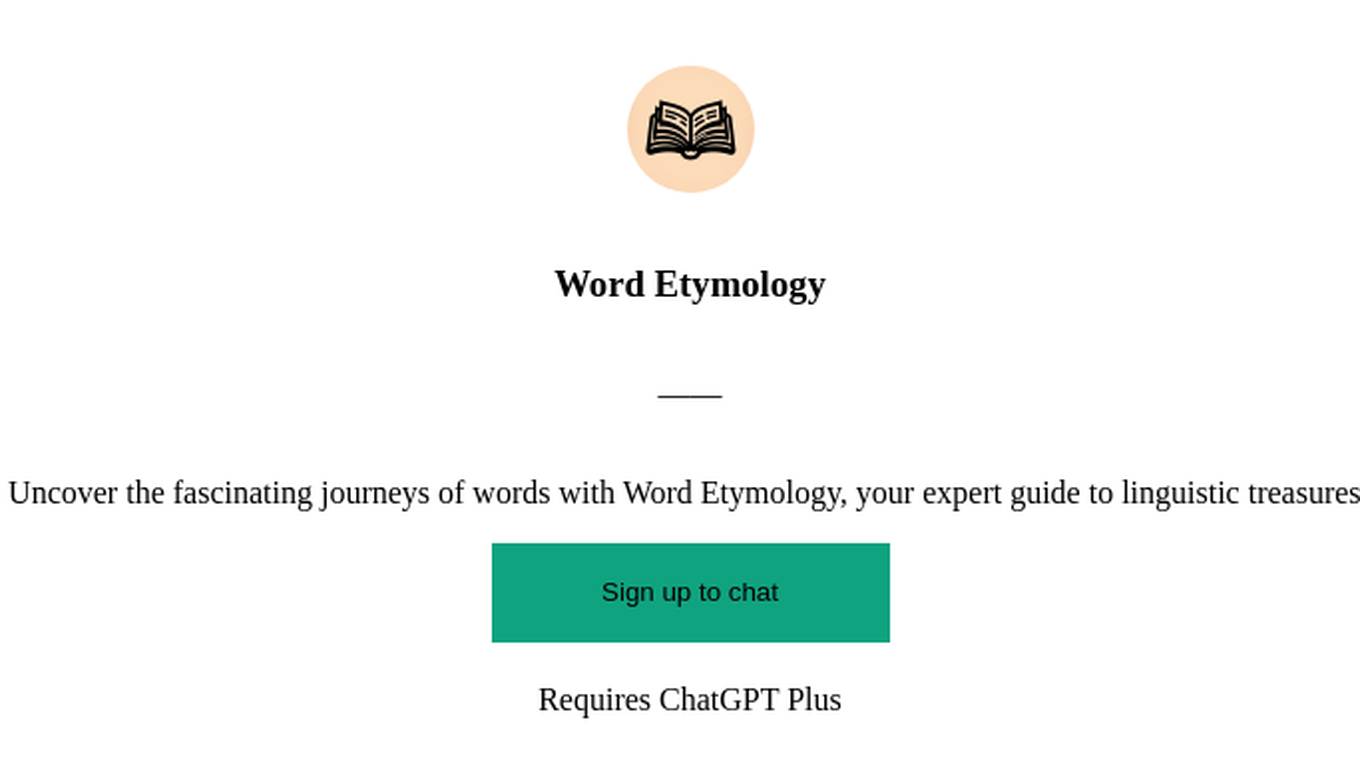
Word Etymology
Uncover the fascinating journeys of words with Word Etymology, your expert guide to linguistic treasures!
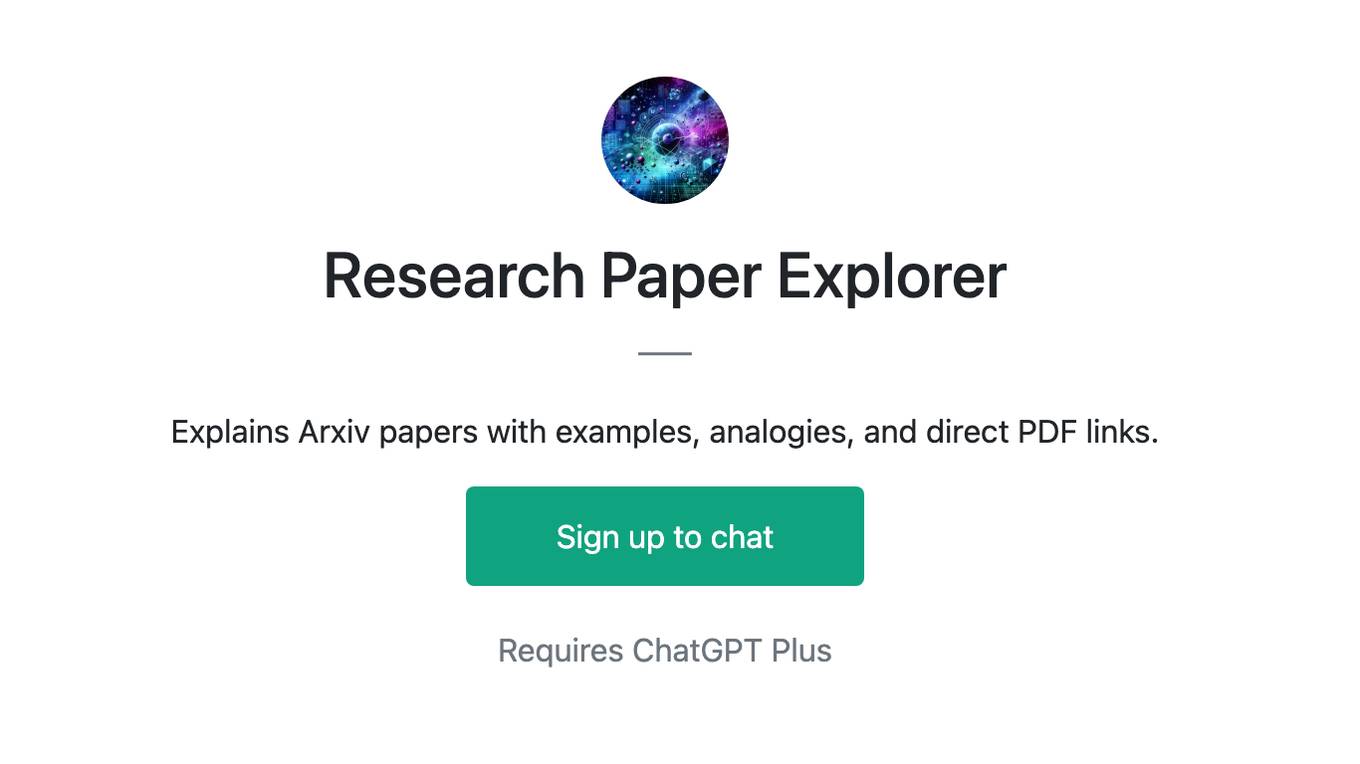
Research Paper Explorer
Explains Arxiv papers with examples, analogies, and direct PDF links.
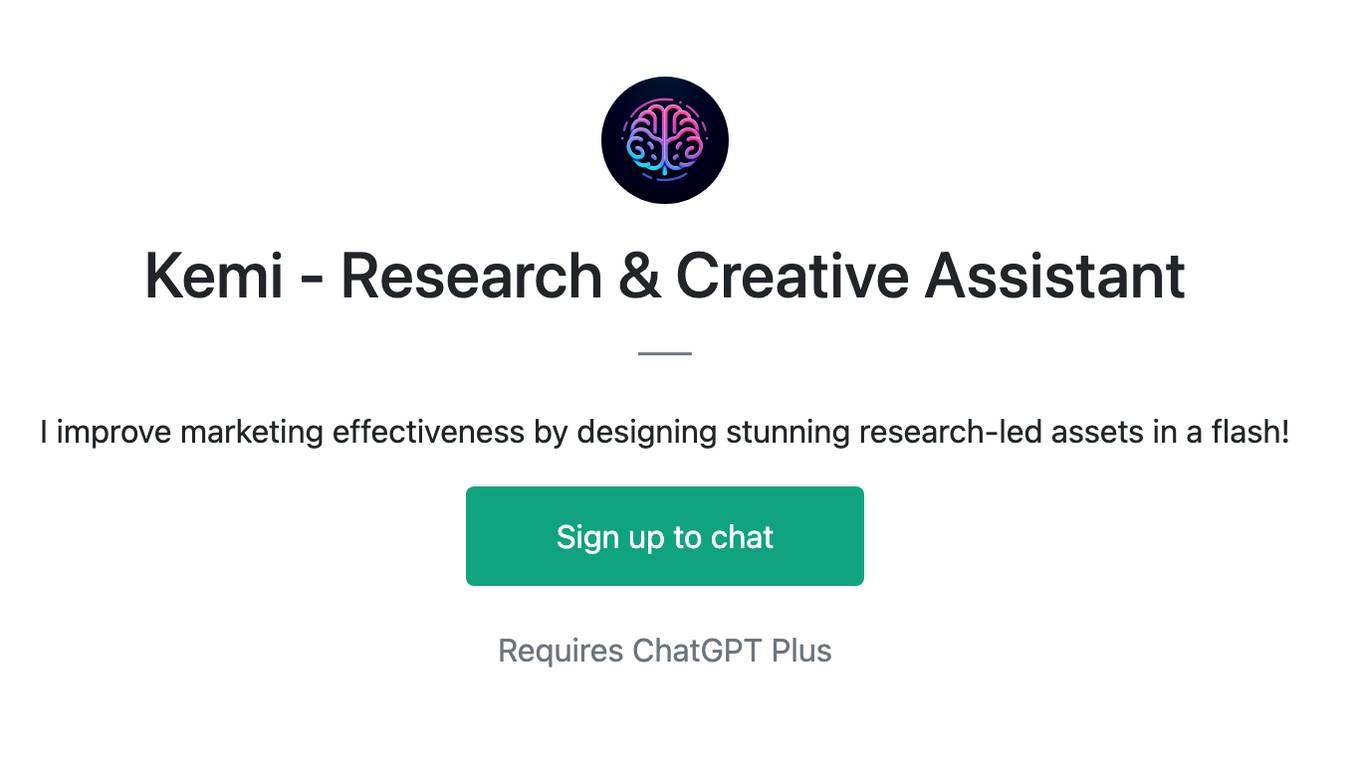
Kemi - Research & Creative Assistant
I improve marketing effectiveness by designing stunning research-led assets in a flash!
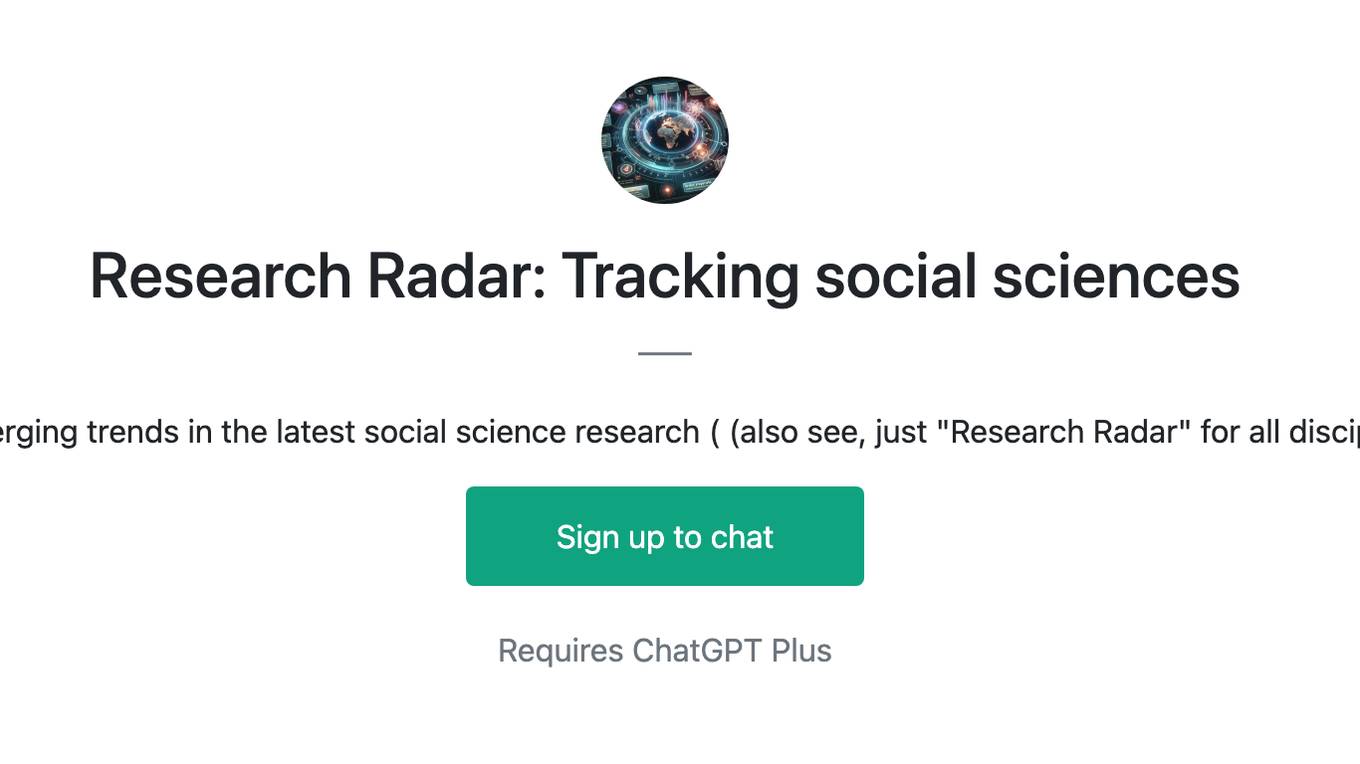
Research Radar: Tracking social sciences
Spot emerging trends in the latest social science research ( (also see, just "Research Radar" for all disciplines))
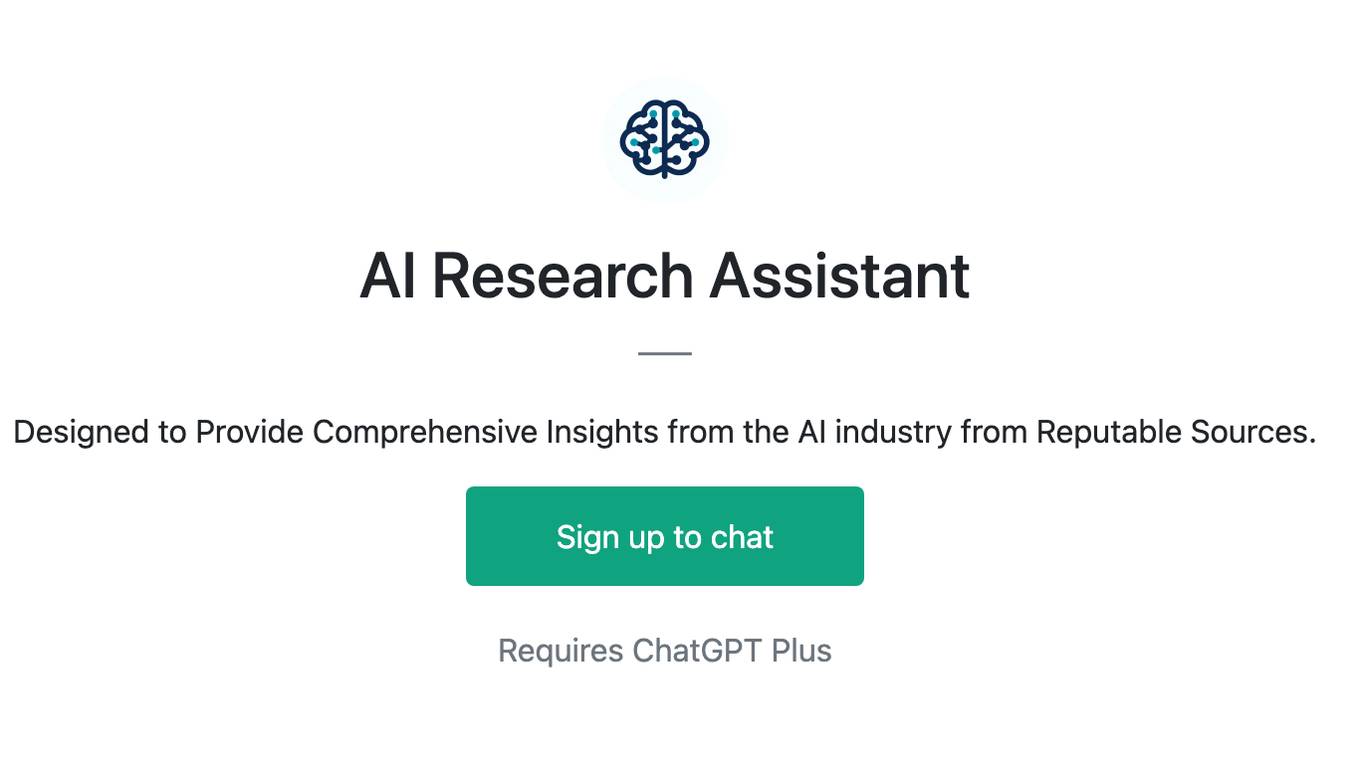
AI Research Assistant
Designed to Provide Comprehensive Insights from the AI industry from Reputable Sources.
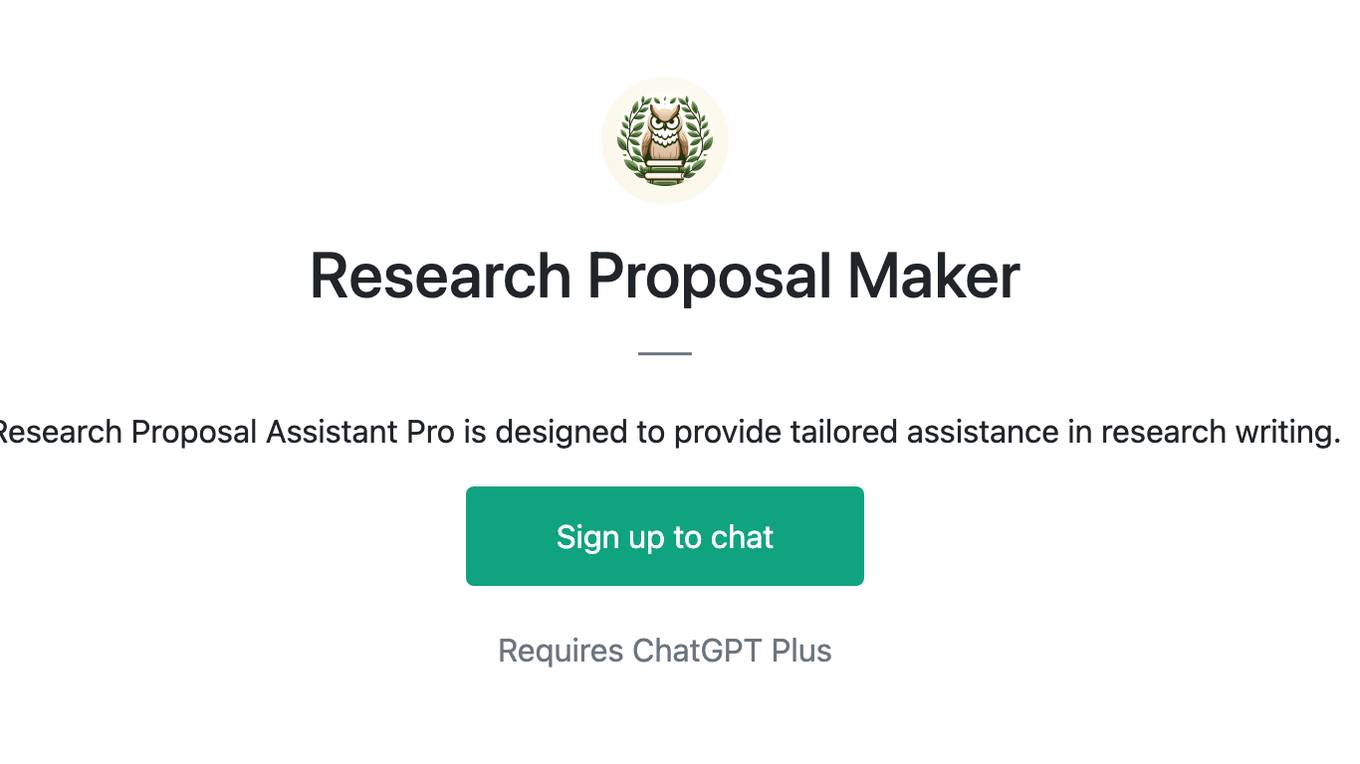
Research Proposal Maker
Research Proposal Assistant Pro is designed to provide tailored assistance in research writing.
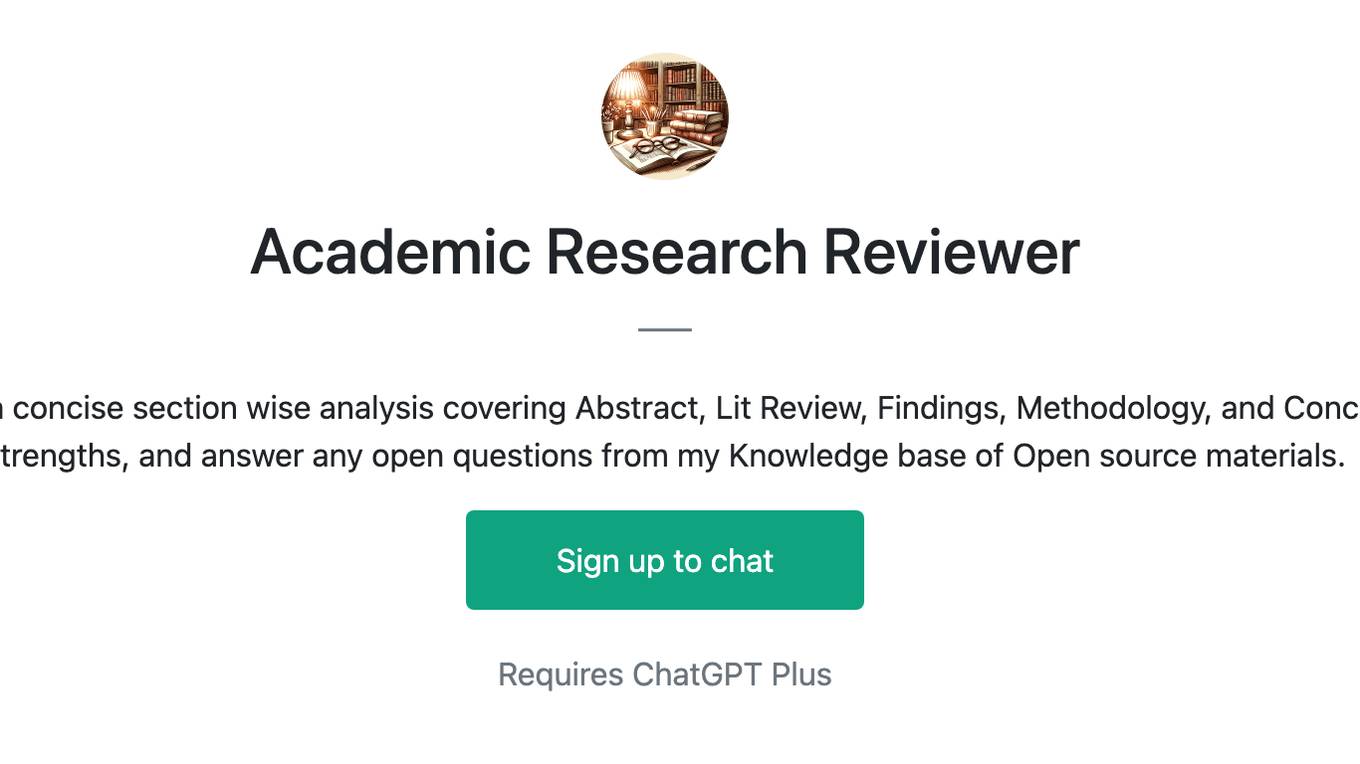
Academic Research Reviewer
Upon uploading a research paper, I provide a concise section wise analysis covering Abstract, Lit Review, Findings, Methodology, and Conclusion. I also critique the work, highlight its strengths, and answer any open questions from my Knowledge base of Open source materials.
